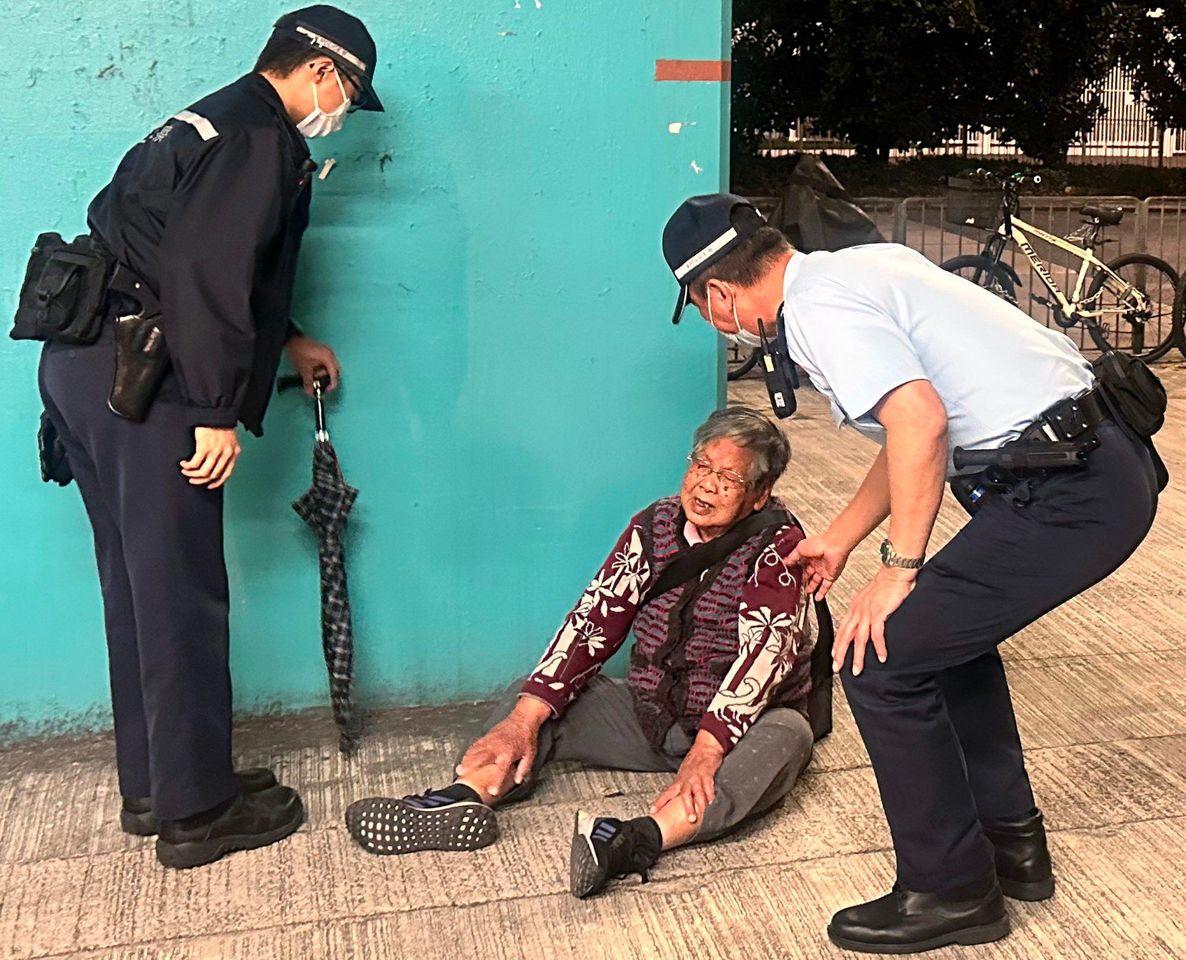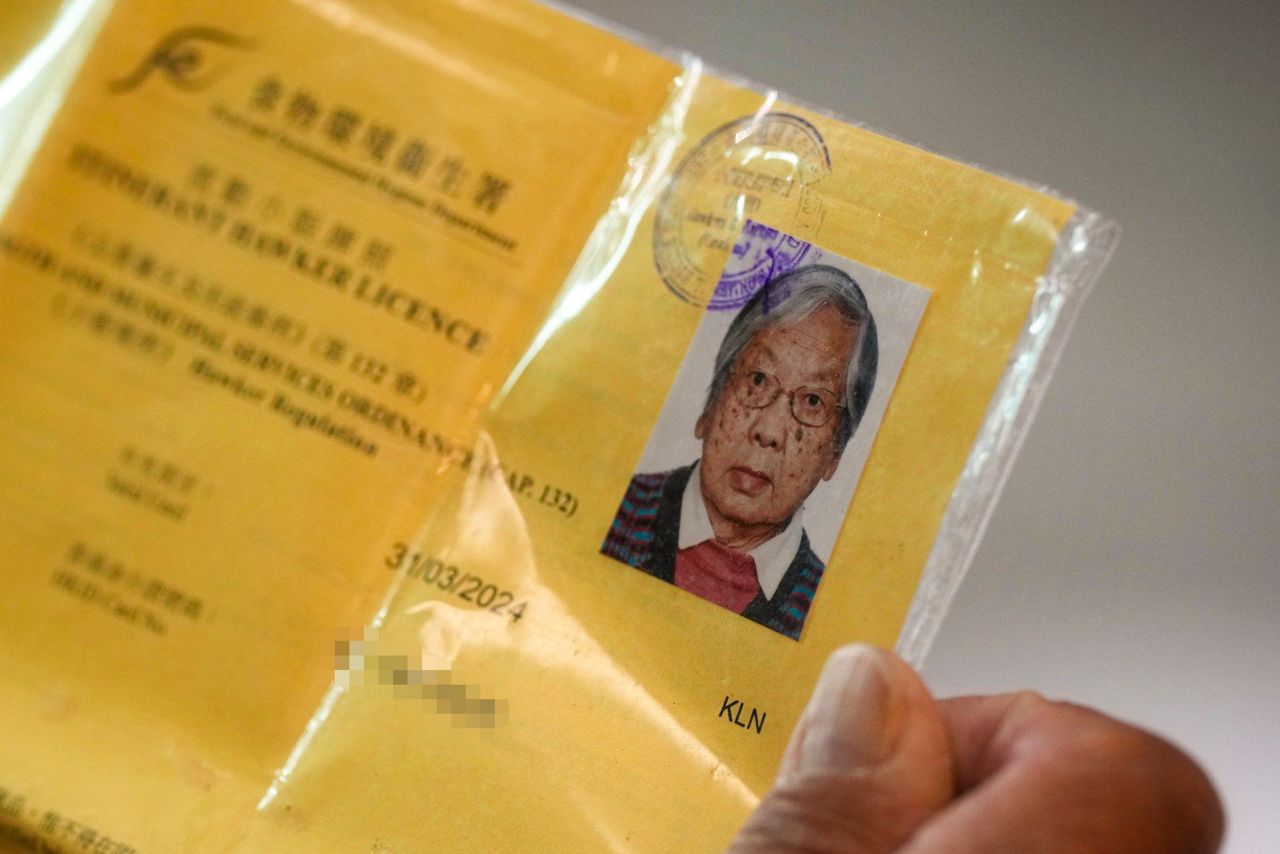Hong Kong News

Hong Kong hawker, 90, asks authorities to change ‘outdated’ laws governing trade
For more than 60 years, hawker Chan Tak-ching, 90, has relied on her cart to sell clothes, fruit, poultry and roasted chestnuts on Hong Kong’s streets to support her family.
She said business was good decades ago when she first joined the trade in the 1960s and started selling clothes with her husband.
Street hawking was burgeoning at the time with vendors springing up across the city selling a variety of products, she recalled during an interview with the Post.
But Chan said business receded over the years and, after her husband died of lung problems more than 30 years ago, she took over the work on her own to raise her three daughters and son.
She explained she used to wake up at around 7am and get her children ready for school before setting up her stall on Reclamation Street in Yau Ma Tei near her home.
 A distraught Chan Tak-ching after her cart was seized by officials.
A distraught Chan Tak-ching after her cart was seized by officials.
Chan had to go to Sham Shui Po to get her stock for the next day after she finished a day’s operation at 7pm – finally getting home just before midnight.
“I have relied on hawking to raise my children and support my family,” she said. “I’m proud to keep working at this age to make a living by myself.”
But now Chan could lose the business she has relied on for decades after her cart was confiscated by enforcement officers earlier this week.
A row broke out between Chan and dozens of officers from the Food and Environmental Hygiene Department in Cheung Sha Wan on Monday, after the officers threatened to confiscate her cart when she was briefly away.
They also took away a 29-year-old man, who was not a licensed operator, who Chan said was her friend’s friend who was looking after the cart while she took a toilet break.
Chan was seen sitting on the ground as the drama unfolded, begging the officials not to take away the cart – to no avail.
She appealed to the authorities to return the cart so she could start working again – and also asked the government to review its rules for the city’s dwindling number of hawkers.
“The city’s hawkers are already dying out, but the government’s management is inflexible,” she said.
Chan said it was the first time she had her cart confiscated, which had caused huge distress.
She admitted she had been fined small amounts over the years for operating the cart in off-limits areas, such as close to crowded MTR stations, where hawking was banned.
But she explained hawkers sometimes risked a fine to operate in high-traffic areas because they had higher footfall, which meant better business.
Chan said she normally operated the stall in places such as Sham Shui Po and Tai Kok Tsui, selling roasted chestnuts, sweet potatoes and quail eggs and earning about HK$3,000 (US$382) a day.
She said it was her way of remaining self-reliant, even though business was not as good as it once was.
Chan added that, in addition to the return of her cart, the authorities should review the rules and ease the number of places where hawking was banned.
The rules were “unempathetic” to a struggling sector and outdated because they were drawn up when many street hawkers used to flood the streets and block traffic, she said.
She also called on the government to allow street vendors to hire assistants if they wanted.
Chan said, if her cart was not returned, she might have to pay between HK$2,000 and HK$3,000 for a new one, although the grandmother of 10 added retirement might also be on the cards at last.
She said she had no difficulty in making ends meet now because her children were grown up and had their own families.
She also thanked people touched by her plight who had offered cash donations but said she had declined to accept them.
“I only want my cart back and the dignity and rights of being a hawker,” Chan insisted.
 Chan Tak-ching’s hawker’s licence, which she has held for about 60 years.
Chan Tak-ching’s hawker’s licence, which she has held for about 60 years.
Lawmaker Doreen Kong Yuk-foon, who has thrown her weight behind Chan, said the department had confirmed that a hawker could ask someone else to look after their cart while they were away, but that the individual could not operate the stall on their behalf.
“The helper cannot help sell things,” Kong said.
“I appreciate it is the law. But can the officers be more compassionate when enforcing the law? When the licence holder is away, should the helper chase away people who want to buy things at the stalls?” she added.
Kong said she was told by the department that the cart could not be returned to Chan because it was now an exhibit in the case.
“It will be up to the judge to decide whether the cart would be returned to Chan or not. But I would be surprised if the judge decides not to,” Kong said.
Albert Luk Wai-hung, a barrister, said the arrested man could still make a mitigation plea and ask the judge to rule that the cart should be returned to Chan.
“The helper can say the cart is not his or hers and, if it was confiscated, it would only affect the elderly hawker who is actually not a party in the case,” Luk said.











